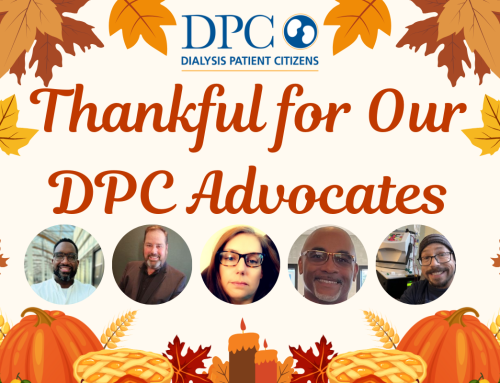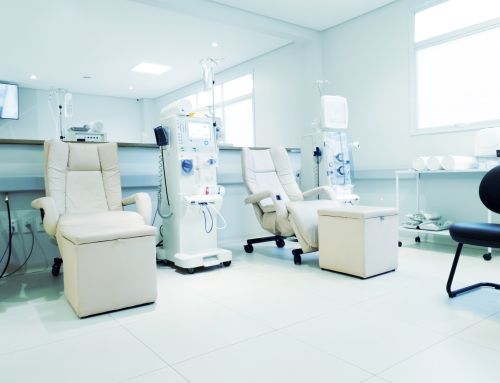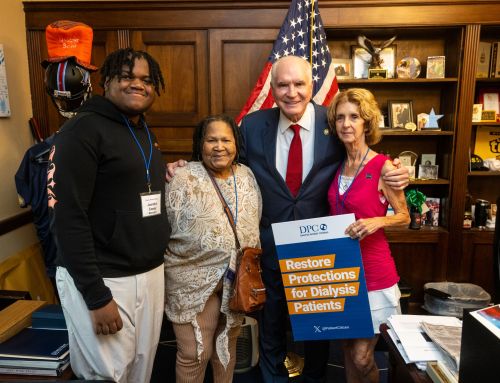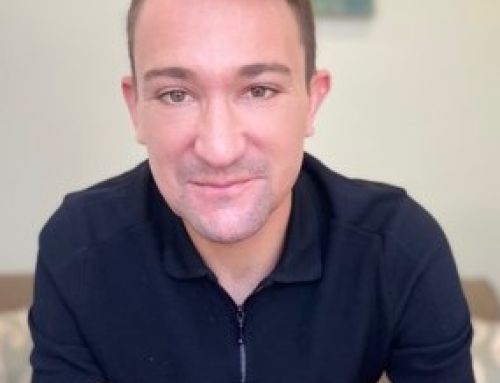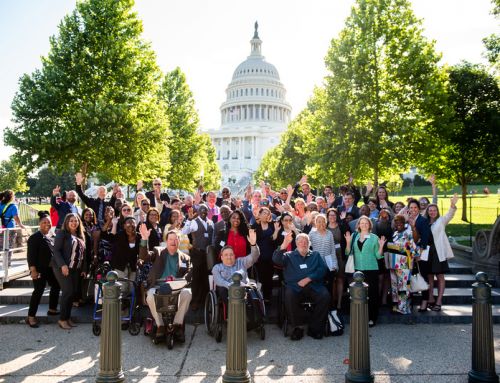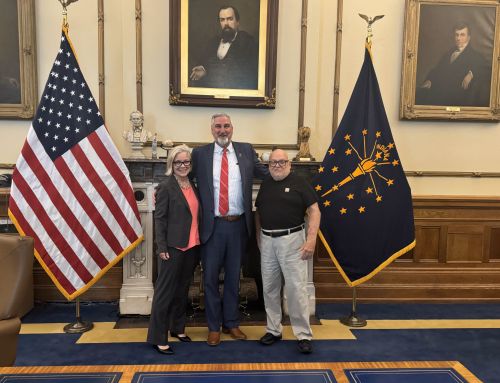August 25, 2022
Hon. Chiquita Brooks-LaSure, Administrator
Centers for Medicare & Medicaid Services
7500 Security Boulevard
Baltimore, MD 21244
Re: CMS-1770-P (Section II.L.)
Dear Administrator Brooks-LaSure:
Dialysis Patient Citizens (DPC) writes to offer its comments on the above referenced proposed rule.
DPC’s membership, currently over 30,000, is restricted to kidney disease patients and their family members. DPC is a patient-led organization. Our by-laws require that the President, Vice President and at least 51% of the Board be current dialysis patients. The non-dialysis patients serving on our Board are former dialysis patients with kidney transplants. Our volunteer board members have represented their peers on CMS technical expert panels and/or advisory committees of other health care organizations such as the National Quality Forum and Patient-Centered Outcomes Research Institute. DPC also conducts periodic Membership Surveys to ascertain patients’ experiences with their care and views on health policy issues. DPC is committed to promoting access to high-quality dialysis care for individuals with ESRD; to prevention of, delayed onset of, and safe transition to ESRD among individuals with chronic kidney disease; and access to kidney transplantation as well as to other alternatives to dialysis that may emerge.
We applaud the Agency for recognizing the need to maximize its authority to cover “medically necessary” dental care in Medicare. Medicare’s lack of dental coverage not only leaves oral health care unaffordable for millions of Americans, it also exacerbates underlying racial, geographic and disability-related health and wealth disparities. It is of particular concern to dialysis patients, about half of whom are under 65 and are left without employer-sponsored dental coverage at a relatively young age to face years of deteriorating oral health without assistance.
CMS proposes to clarify and codify the agency’s interpretation that certain dental services may not be subject to the Medicare’s payment exclusion for dental services under Section 1862 (a)(12) of the Act because they are “inextricably linked to, and substantially related and integral to the clinical success of, a certain covered medical service.”
This proposal is an important recognition and clarification of CMS’s existing authority, which will help to ensure that Medicare beneficiaries can access and afford more of the dental care they need to advance their health. The Medicare statute does not bar payment for dental services needed in connection with the covered treatment of a medical condition. We agree with a wide array of stakeholders that CMS’s past interpretation of its authority in this area was unnecessarily restrictive, and may contribute to inequitable access to dental services—and thus inequitable health outcomes– for Medicare beneficiaries. Moreover, this updated interpretation of authority would be consistent with coverage in other areas, such as the “medically necessary” exemption with respect to the statutory exclusion of payment for foot care.
There is strong legal consensus supporting the actions CMS has proposed, as well as adding coverage for additional medical scenarios that CMS is considering. Additionally, we know there is clinical consensus from many leading medical experts and professional associations about the importance of dental care in these and other medical treatments. We strongly support the proposed clarification and codification of existing authority, and, as discussed below, we encourage CMS to apply this authority in all settings and clinical circumstances where it is appropriate.
The Agency proposes to clarify and codify existing examples of “medically necessary” dental coverage. Medicare’s dental policy already extends coverage to dental examinations performed as part of a comprehensive workup prior to renal transplant surgery. CMS also proposes to codify additional specific examples in which the proposed coverage standard applies, including the necessary dental treatments and diagnostics to eliminate the oral or dental infections found during a dental or oral examination as part of the organ transplant workup, as well as for services that are ancillary to these dental services, such as x-rays, administration of anesthesia, and use of the operating room. We believe this will increase the number of dialysis patients able to obtain kidney transplants, as well as help level the playing field between affluent and disadvantaged kidney patients and reduce racial disparities in transplantation.
CMS also asks whether there are “types of surgery, or clinical scenarios involving acute or chronic conditions that would have an improved patient outcome if certain dental services are furnished, such that those dental services should be considered so integral to the standard of care that the preclusion on Medicare payment should not apply.”
Kidney failure plays havoc with dialysis patients’ mouths and teeth. Nephrologists report that many access site and bloodstream infections result from oral origins. Further, dental problems can make it difficult for patients to get proper nutrition or to chew phosphate binders, and can impact hemoglobin levels. In short, there are additional clinical scenarios in which dental care for dialysis patients is analogous to foot care for diabetic patients and ought to be covered. We do not claim medical expertise in this area, so we strongly urge CMS to review the applicable literature and consult with experts to develop guidelines for covering necessary dental treatment for those dialysis patients who are likely to experience complications of their kidney disease in its absence. Such coverage would improve patients’ quality of life and avoid unnecessary hospital care with its associated costs to the Medicare program.
Thank you for your consideration of our comments and concerns. If you have any questions or would like additional information, please do not hesitate to contact me or our Vice President of Public Policy Jackson Williams (at 202-768-4506 or jwilliams@dialysispatients.org).
Respectfully submitted,
Hrant Jamgochian, J.D., LL.M.
Chief Executive Officer

